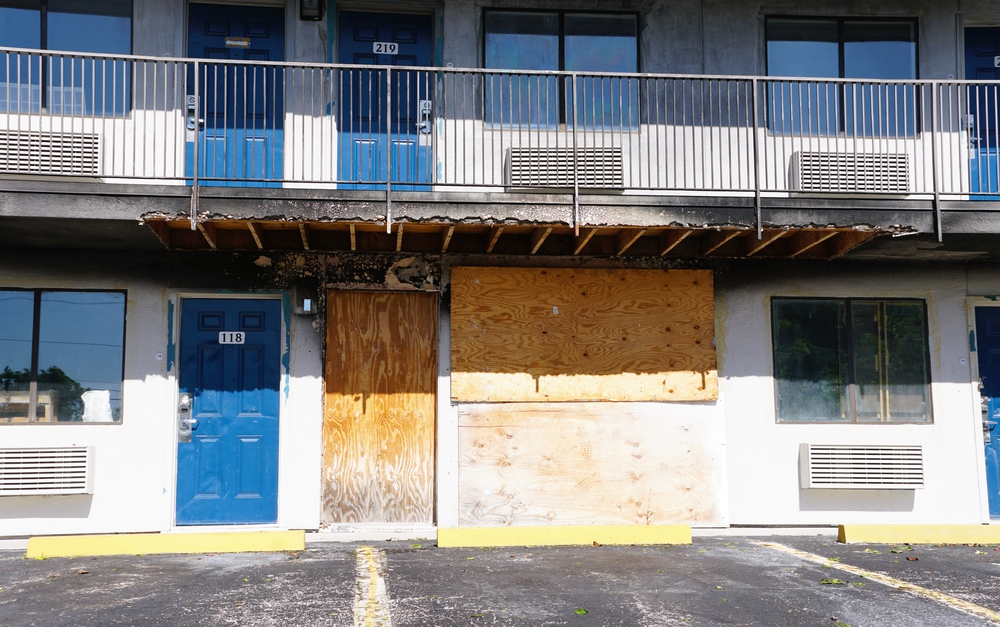Retirement opens the door to incredible travel opportunities, but freedom from work schedules doesn’t automatically turn someone into a savvy traveler. Many retirees dive into their dream trips with enthusiasm but overlook practical details that can turn adventures into headaches. Years of experience in other areas don’t necessarily translate to travel wisdom, and some assumptions about ‘how things work’ can lead to costly surprises.
The good news is that most travel mishaps are completely preventable with a bit of planning and awareness. Here is a list of 15 common mistakes that even experienced retired travelers continue to make, along with the reality checks that can save time, money, and stress.
Not Checking Health Insurance Coverage Abroad

Medicare doesn’t follow you overseas, yet many retirees assume their health coverage works everywhere. This misconception can lead to massive medical bills if something goes wrong during international travel.
Smart travelers either purchase supplemental travel health insurance or verify their existing coverage includes international emergencies before booking anything.
Booking Trips Too Far in Advance

Retirement means flexibility, but many retirees still book like they’re working around vacation days. Locking in flights and hotels a year ahead might seem responsible, but it eliminates the ability to adjust for health changes, family needs, or better deals.
A six-month booking window usually offers the sweet spot between good prices and reasonable flexibility.
Like Travel Pug’s content? Follow us on MSN.
Overpacking for Extended Trips

The logic seems sound: longer trip equals more stuff needed. However, carrying excess baggage becomes a bigger burden when you’re moving between multiple destinations or don’t have the physical strength you once had.
Most destinations have laundry services, and buying a few items locally often costs less than airline baggage fees.
Ignoring Accessibility at Destinations

Even physically active retirees can find themselves struggling with cobblestone streets, steep stairs, or long walking distances. Researching accessibility features beforehand prevents disappointment and ensures you can enjoy the places you visit.
Many historic destinations offer alternative routes or services for travelers with mobility considerations.
Forgetting to Notify Banks About Travel Plans

Nothing ruins a vacation faster than having your debit card frozen in a foreign country because your bank thinks it’s fraudulent activity.
Despite decades of banking experience, many retirees forget that financial institutions flag unusual spending patterns. A quick call or online notification before departure prevents this easily avoidable problem.
Like Travel Pug’s content? Follow us on MSN.
Not Downloading Offline Maps

Relying on an internet connection for navigation can leave you stranded when wifi disappears or international data charges pile up. Offline map apps work without internet and can be lifesavers in unfamiliar areas.
This technology has been around for years, but many travelers still haven’t discovered how simple and effective it is.
Choosing Cheapest Flights Without Considering Comfort

Budget consciousness is smart, but the cheapest flight isn’t always the best deal when you factor in comfort, convenience, and connection times. A longer layover might save money upfront, but cost more in meals, hotels, or physical strain.
Sometimes paying slightly more for direct flights or better seat assignments is worth every penny.
Skipping Travel Insurance

The ‘it won’t happen to me’ mentality costs retirees thousands when trips get cancelled, delayed, or interrupted. Travel insurance isn’t just about medical emergencies—it covers everything from weather delays to family emergencies that force you to return home early.
The peace of mind alone makes it worthwhile for most retirement budgets.
Like Travel Pug’s content? Follow us on MSN.
Bringing the Wrong Amount of Cash

Some retirees carry large amounts of cash out of habit, while others rely entirely on cards without researching local payment preferences. Many destinations still operate primarily on cash, while others have moved almost entirely to digital payments.
A little research about local payment customs prevents awkward situations and unnecessary fees.
Not Learning Local Tipping Customs

Tipping practices vary dramatically worldwide, and assumptions based on American customs can offend locals or waste money. In some countries, tipping is insulting; in others, it’s expected but at different rates than you might assume.
A few minutes of research can prevent cultural misunderstandings and help your money go further.
Booking Accommodations Without Reading Recent Reviews

Hotel photos can be deceiving, and facilities change over time—many retirees book based on price or location without checking recent guest experiences. Reviews reveal important details about cleanliness, noise levels, accessibility, and whether the property matches current descriptions.
Recent reviews matter more than overall ratings from years past.
Like Travel Pug’s content? Follow us on MSN.
Failing to Secure Home While Away

Extended retirement travel requires more home security considerations than weekend getaways. Mail and package deliveries pile up, lawns grow unmaintained, and empty houses become targets for break-ins.
Arranging for house-sitting, mail holds, lawn care, and neighbor check-ins provides peace of mind and protects your investment while you’re away.
Not Researching Local Transportation Options

Many retirement destinations aren’t designed for rental cars, yet retirees often default to familiar transportation methods without researching alternatives. Public transportation, walking tours, or local drivers might be safer, cheaper, and more convenient than navigating foreign traffic and parking situations.
Understanding transportation options before arrival prevents stress and unexpected expenses.
Booking Tours Without Checking Physical Requirements

Tour descriptions often downplay the physical demands involved, using vague terms like ‘moderate walking’ or ‘some stairs.’ Many retirees book based on interest alone without researching the actual physical requirements.
A ‘leisurely’ walking tour might involve three hours on uneven surfaces, while ‘some stairs’ could mean climbing several flights without elevators.
Like Travel Pug’s content? Follow us on MSN.
Not Having Backup Plans for Delays

Weather, strikes, mechanical problems, and other disruptions happen more frequently than many retirees expect. Having backup plans for delayed flights, closed attractions, or cancelled tours prevents minor setbacks from becoming major disappointments.
Travel is inherently unpredictable, and flexibility often matters more than perfect planning.
When Experience Meets Wisdom

These errors are not indicative of a lack of experience—they’re merely oversights that occur when passion gets ahead of preparation. The magic of traveling in retirement isn’t about flawless execution but about the ability to learn, improvise, and do better next time.
Every journey teaches valuable lessons that improve the next adventure, and the greatest travelers are those who are comfortable with planning and improvisation. The intention is not to prevent all potential errors but to reduce the ones that are easily avoidable while keeping ourselves open to the unforeseen delights of discovering our world.
More from Travel Pug

- 20 Best Beach Towns in the Carolinas
- 13 Destinations Where Tourists Regularly Regret Their Trip
- 20 Things You Actually Get in First Class
- 20 Small Airports With Aviation Museums
- 20 Places in the U.S. That Are Perfect for a Reset Trip
Like Travel Pug’s content? Follow us on MSN.
